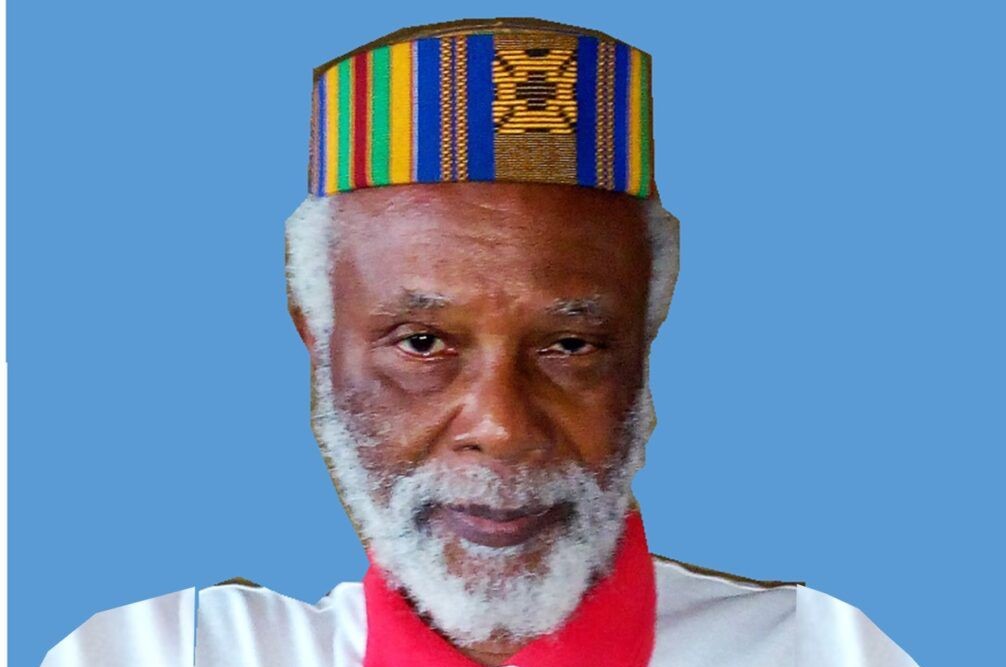By Chinweizu
In March 2023, Ndi-Igbo have landed in a death trap from which there is no visible exit. This is the cumulative consequence of a century of incompetent political leadership. A century in which they failed to produce any leadership that took as its priority task the organising of Ndi-Igbo for group survival in the complex and toxic context of the Nigeria into which their British conquerors dragged them.
Beginning with Nnamdi Azikiwe in the 1940s, through Emeka Ojukwu in the 1960s, all the way to Ohanaeze and Nnamdi Kanu in these 2020s, their leaderships have been disastrous for Ndi-Igbo security. The crisis now triggered by Peter Obi’s LP presidential candidacy in 2023 looks set to destroy plenty of Igbo property and lives in Lagos. And this crisis isn’t likely to be confined to Lagos.
It will very likely spill over into all parts of Nigeria. Their Fulani and other Jihadist enemies will, predictably, see to that. Unfortunately, Ndi-Igbo don’t have the power to protect themselves. With the APC in power there, will Abuja protect Igbos in Lagos or anywhere else in Nigeria? Certainly not. Igbos don’t even have any godfather among the world’s great powers in whose self-interest it is to wade in and save them.
If, by some miracle, they physically survive the fallout from the 2023 elections, let’s hope they will make the time to produce an autonomous and competent Igbo-patriotic leadership that will organise them for survival in Nigeria and the world of the 21C; a leadership that, unlike all they’ve had hitherto, will honestly and courageously address those causes rooted in Igbo behavior that make Nigeria toxic for them.
It isn’t as if Igbos have never been admonished to look into and correct the aspects of their own behavior, values and national character that have endangered them in the toxic context of Nigeria. For the last four decades, starting in the early 1980s, some of their best and brightest have admonished them, in books and public lectures, but haven’t been heeded. Among these were Professors Chinua Achebe, Ben Nwabueze, Adiele Afigbo, Green Nwankwo, as well as other Igbo-patriotic observers outside academia.
Of special importance is Prof. Nwabueze’s 1985 Ahiajoku Lecture titled “The Igbos in the context of Modern Government and Politics in Nigeria: A Call for Self-Examination and Self-Correction.” That’s because, beginning with its title, it focuses on what Igbos are most in need of but have proved stubbornly allergic to, namely Self-examination and Self-correction. In the Lecture, Prof. Nwabueze asked and answered this crucial question:
“Why are Igbos feared, resented and hated in Nigeria? I think the basic explanation is that the establishment of the Nigerian State, with its power politics and its competitive economic system, has brought out the best and the worst in the Igbo, and exposed the other peoples of Nigeria to it. The best in the Igbo character excites fear in others while the worst in him excites resentment and hatred. And he is endowed by nature with rather liberal measures of both. His best is singularly good, his worst is singularly bad.”
Unfortunately, the Igbo political and business leaders, and their elite generally, have refused to heed these admonishers.
Without any possibility of sane doubt, others will react to Igbo behavior as they see fit. Igbos cannot control or dictate how they react. But Igbos can change those aspects of their own behavior that others react adversely to. They can’t continue to do those same things and expect a different result. If they want to survive and be secure in Nigeria, they need to produce an Igbo-patriotic, Igbo-loyal and politically competent leadership that will do whatever is necessary to make the appropriate changes in themselves.
I reckon Igbos can have both security and prosperity in Nigeria. But their first step is to diagnose why the combination has eluded them thus far. They must then discover and overcome the obstacles on their path to the combination, Igbo-generated obstacles and those generated by non-Igbos.
After eight decades of incompetent political leaderships and four decades of unheeded admonitions, Igbos are now in a death trap with no visible exit.
Let’s pray that, by some miracle, they survive this 2023 crisis and quickly thereafter bless themselves with the leadership that will rescue them from a Nigeria that’s toxic for them.

